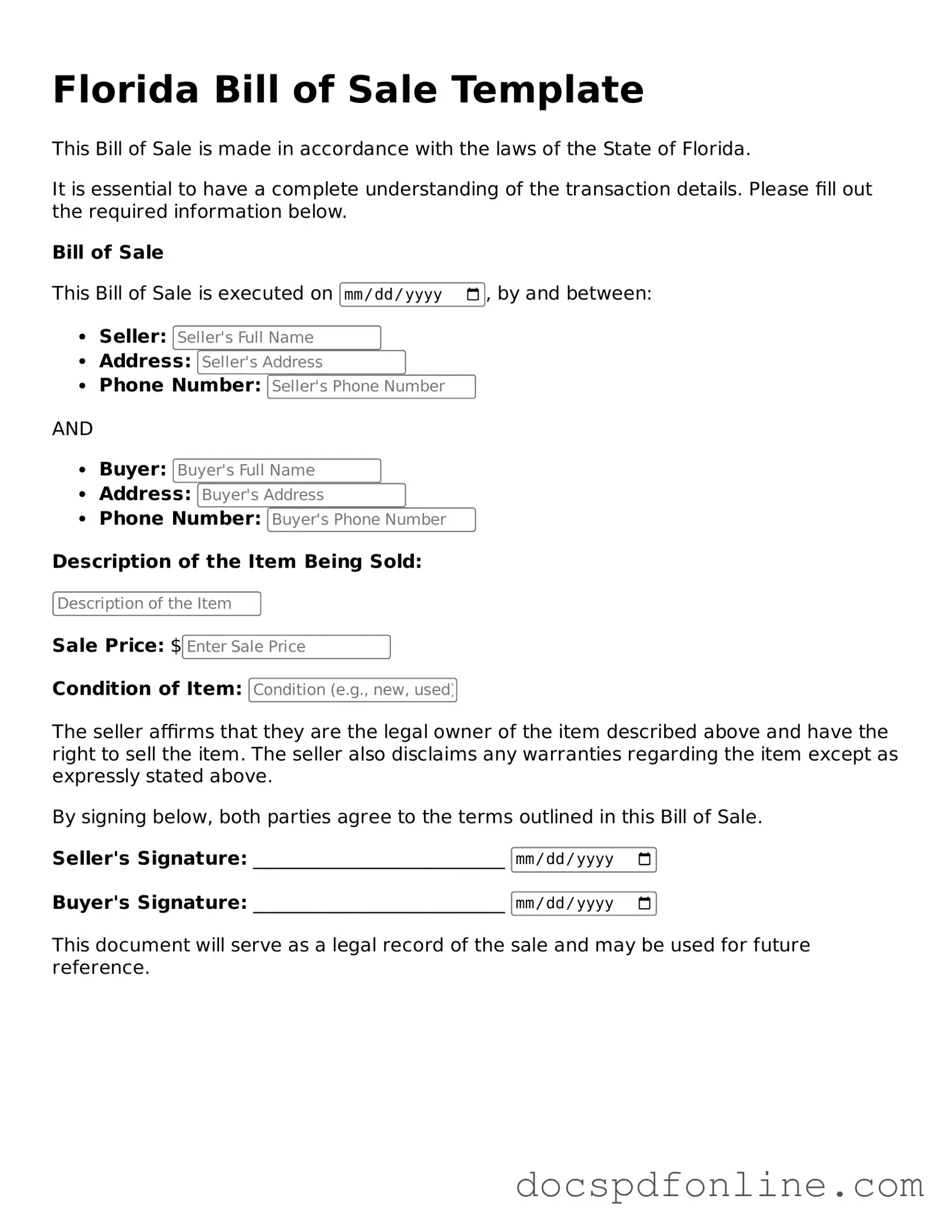Legal Bill of Sale Template for Florida
A Bill of Sale is a legal document that serves as proof of the transfer of ownership of personal property from one party to another. In Florida, this form is essential for ensuring that both the buyer and seller have a clear record of the transaction. Understanding how to properly complete and utilize this document can help protect your rights and interests in any sale.
Launch Editor Now

Legal Bill of Sale Template for Florida
Launch Editor Now
Save time — finish this form fast
Finish Bill of Sale online — edit, save, download made easy.
Launch Editor Now
or
↓ PDF File
